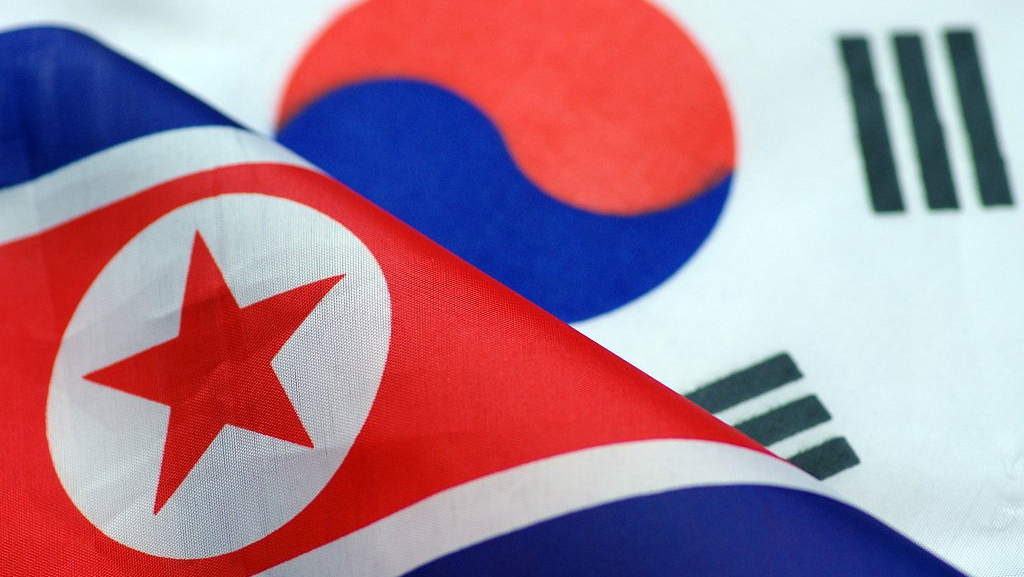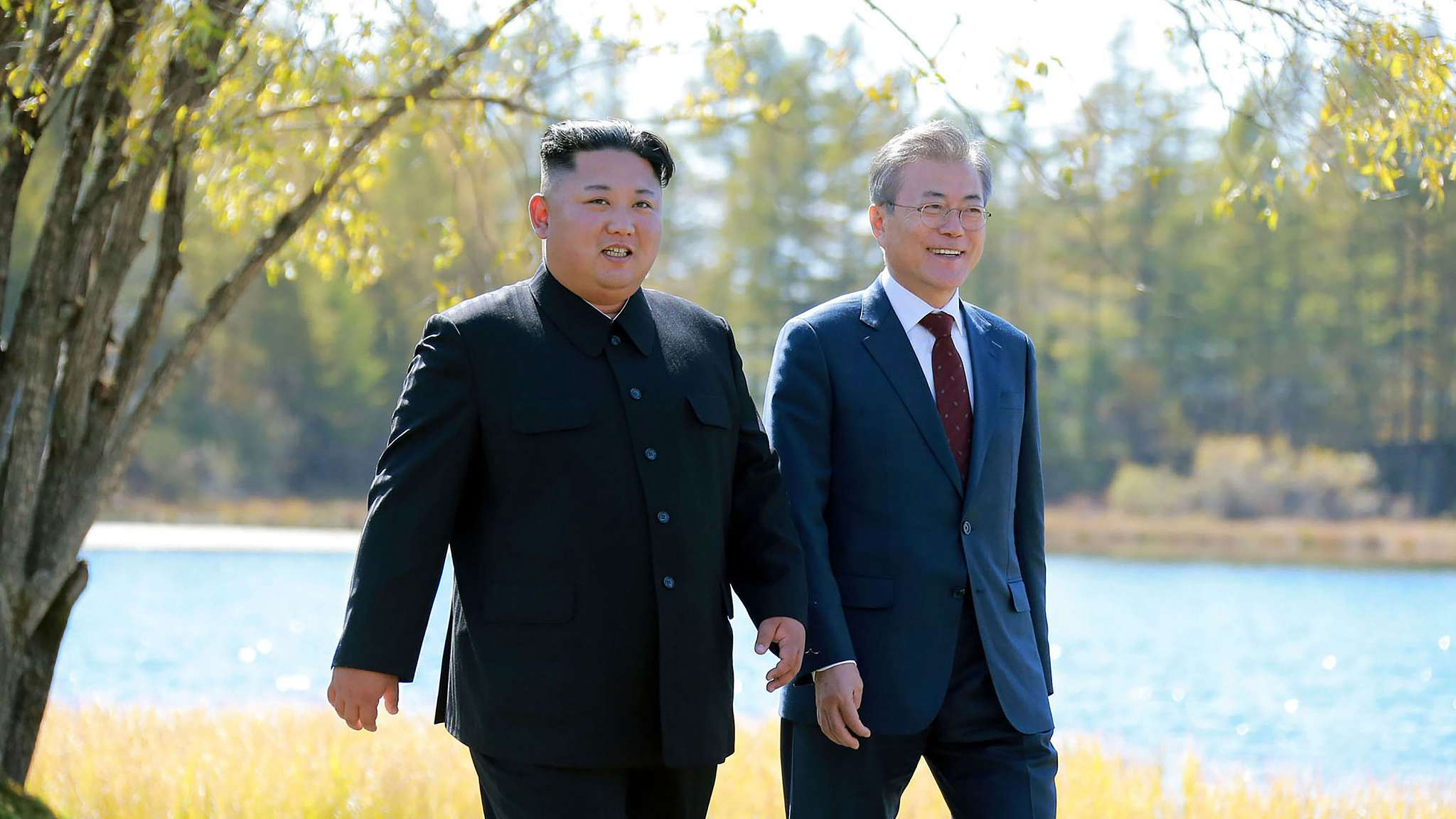
Politics
11:46, 01-Oct-2018
ROK, DPRK begin DMZ landmine removal work
Updated
11:29, 04-Oct-2018
CGTN
00:34

The Republic of Korea (ROK) and the Democratic People's Republic of Korea (DPRK) on Monday began removing landmines in parts of the Demilitarized Zone (DMZ) separating them, in line with a recent agreement to reduce tensions and prevent accidental clashes, Yonhap reported, citing ROK's defense ministry.
Millitary teams from both Koreas started removing landmines in the Joint Security Area (JSA) inside the DMZ, which has left the Korean Peninsula divided since the 1950-53 Korean War ended with armistice.
The two sides agreed to disarm the JSA under the military agreement, which was signed by defense chiefs during the Pyongyang summit in September between South Korean President Moon Jae-in and DPRK's top leader Kim Jong Un.

DPRK's top leader Kim Jong Un (L) and ROK President Moon Jae-in (R) walking together during a visit to Samjiyon guesthouse near Mount Paektu in Samjiyon, the DPRK, Sept. 20, 2018. /VCG Photo
DPRK's top leader Kim Jong Un (L) and ROK President Moon Jae-in (R) walking together during a visit to Samjiyon guesthouse near Mount Paektu in Samjiyon, the DPRK, Sept. 20, 2018. /VCG Photo
"Regarding landmine removal work as the starting point, the military authorities of the two Koreas will make joint efforts to ensure that their military agreement will be carried out systematically and normally," the ministry said in a press release.
The removal work could last for 20 days. The two Koreas and the UN Command, which oversees activities in the DMZ, reportedly launched consultations on how to operate troops in the JSA after the disarmament.
The agenda may also include the idea of stationing 35 troops each from the two Koreas in the JSA for joint security operations.
Troops in the JSA have been banned from crossing the military demarcation line (MDL) since the 1976 incident, in which DPRK soldiers axed two US soldiers. Before the incident, troops were allowed to freely move inside the JSA.
Military teams from the two countries also launched landmine removal work in the eastern border areas in Cheorwon, Gangwon province, to prepare for the joint excavation of the Korean War remains.
The work to eliminate landmines in Arrowhead Ridge in Cheorwon, a site of an intense battle during the Cold War conflict, will continue until Nov. 30. The remains of some 500 troops, including around 300 UNC troops, are estimated to be buried in the ridge.
The two Koreas are set to conduct the joint excavation project in the Cheorwon area from April 1 to Oct. 31, 2019.

SITEMAP
Copyright © 2018 CGTN. Beijing ICP prepared NO.16065310-3
Copyright © 2018 CGTN. Beijing ICP prepared NO.16065310-3